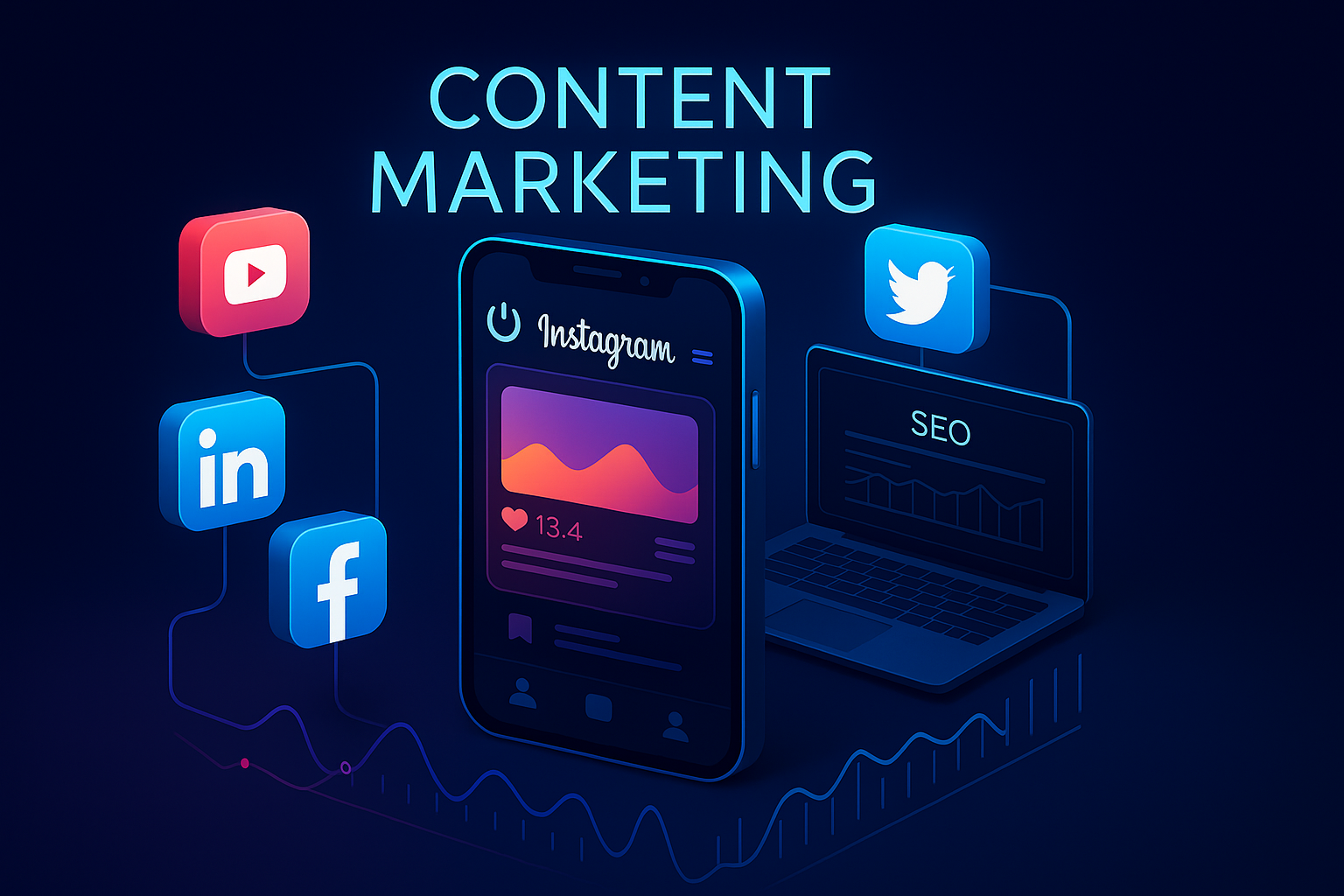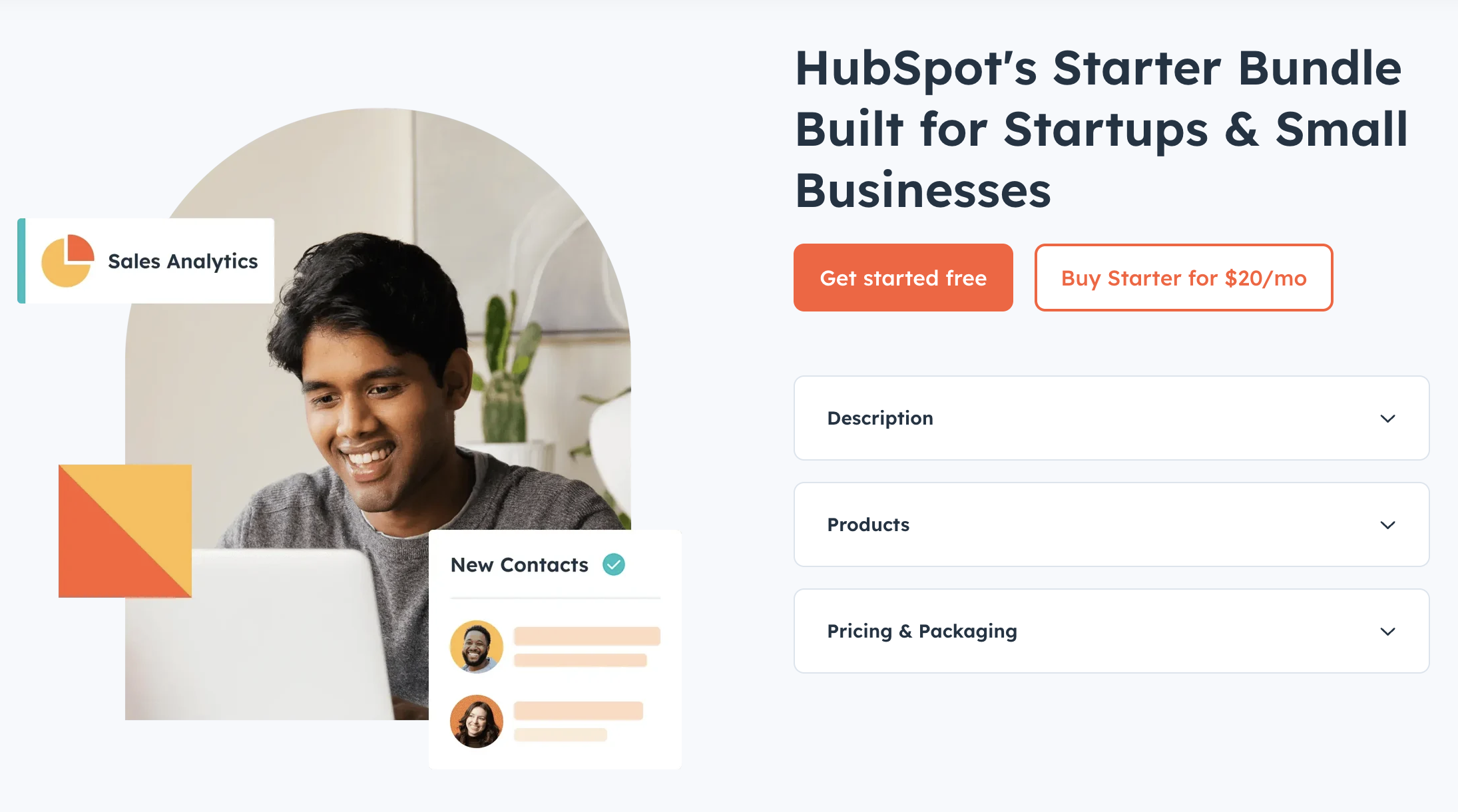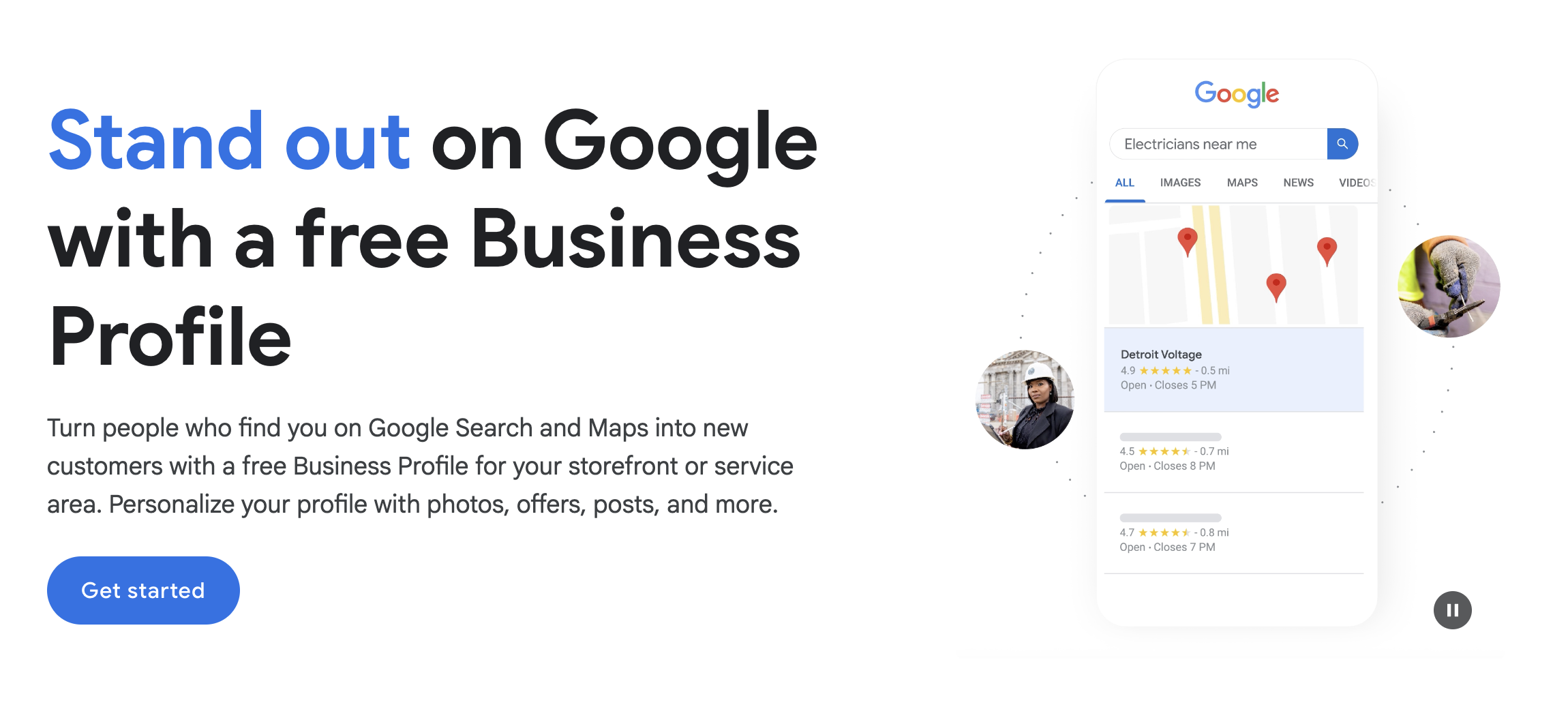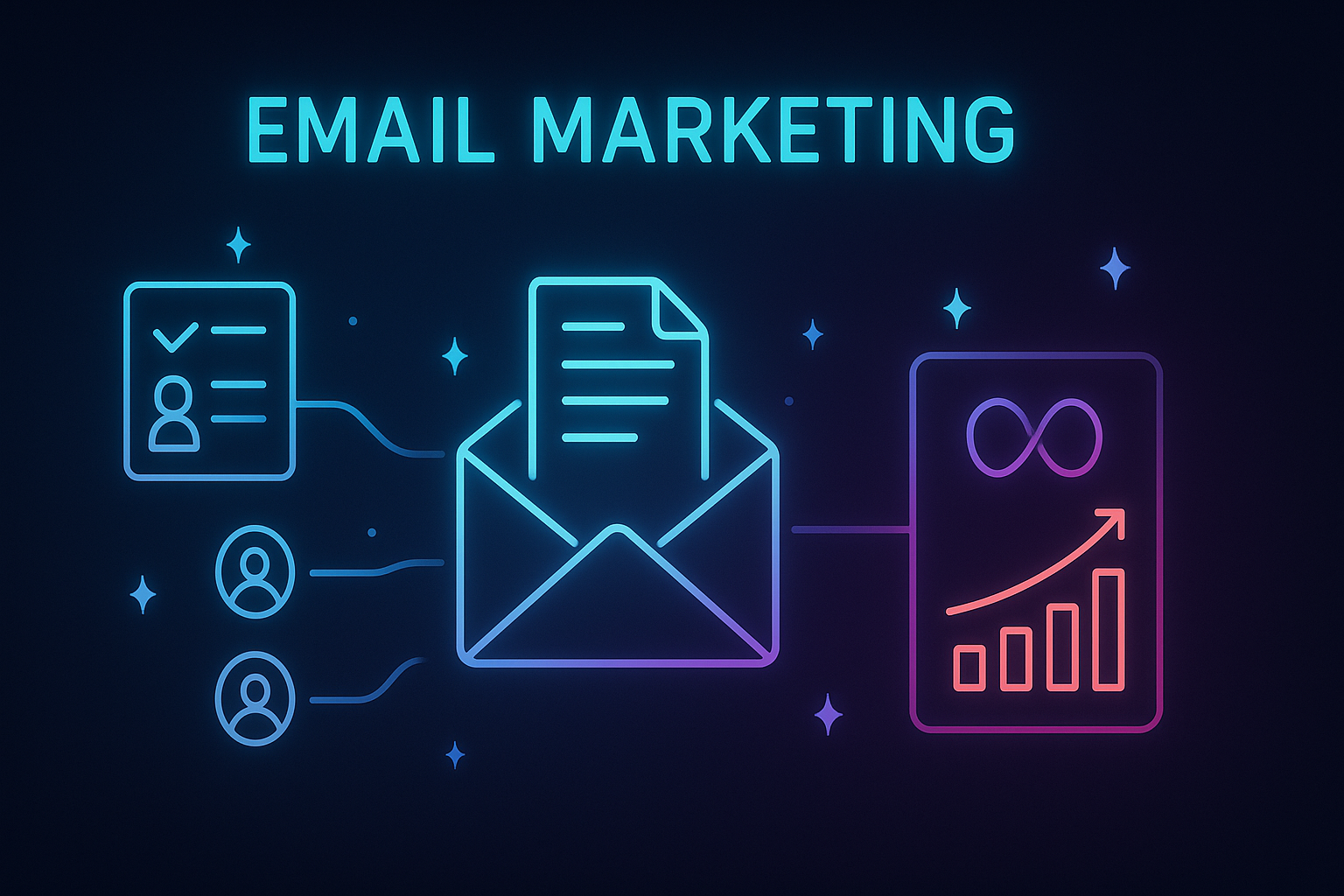
20 Small Business Marketing Ideas That Work Even With a Limited Budget
May 20, 2025Running a small business is tough enough without the added pressure of figuring out marketing. I understand completely – you've got limited marketing budget, tight resources, and a million things on your to-do list.
Fortunately, you don't need a massive marketing team or deep pockets to effectively market your small business. In this guide, I'll share battle-tested small business marketing strategies that only require about 3-5 hours of your time each week. Let's cut through the noise and focus on what actually works!
What exactly is small business marketing and why is it crucial for business growth?
Small business marketing operates very differently compared to what big corporations do. While they throw millions at Super Bowl ads, you're trying to make every dollar of your marketing budget count. The advantage of being small is your ability to be human and personal in ways big businesses simply cannot match. You don't need to outspend the competition – you need to be smarter about where you focus your marketing effort.
I've seen countless small businesses reach their potential by mastering just a few marketing strategies rather than trying to do everything at once. Effective marketing comes from spending wisely on tactics that actually connect with your target audience and drive business growth
How do you create a small business marketing plan that actually delivers results?
Let me ask you something: Would you start a road trip without knowing where you're going or how to get there? Probably not! Yet that's exactly what 25% of small businesses do with their marketing – they don't have a marketing plan and then wonder why they're not seeing results.
Creating a marketing plan doesn't have to be complicated. Start by getting crystal clear on who you're trying to reach. What keeps your ideal customers up at night? Where do they hang out online? What problems are they desperately trying to solve? Once you understand your target audience at this level, your marketing messages will practically write themselves.
Your plan doesn't need to be a 50-page document – even a simple one-pager can work wonders. Just make sure it includes specific goals (like "get 20 new customer inquiries per month"), which marketing channels you'll focus on, and how you'll measure success. Consider it your marketing roadmap – it might need adjusting sometimes, but it will keep you moving in the right direction. Building a marketing plan is essential for effective marketing for small businesses.
Why is content marketing essential for small businesses starting out?
Content marketing functions as a long-term investment for your business – it costs very little to begin, primarily requiring your time and knowledge rather than financial resources. The real beauty of content marketing lies in its accessibility – you can start immediately without any budget.

Here's the essential strategy: focus on just 1-2 content channels where your target audience actively engages. For B2B consultants, LinkedIn articles and email newsletters often make sense. Wedding photographers might prioritize Instagram and Pinterest. Local restaurants could concentrate on Google Business posts and Facebook. The specific channels matter far less than your commitment to consistently create valuable content on your chosen platforms.
Content marketing provides exceptional value for small businesses because it builds assets that continue working for you continuously. A properly optimized blog post answering a common customer question can attract traffic for years. An informative Instagram guide addressing an industry problem can continue gaining followers long after publication. This represents truly effective marketing that compounds over time.
Remember that content marketing requires patience. While it won't generate immediate results like paid advertising might, the foundation you build becomes increasingly valuable with time. Successful businesses stick with content creation when others abandon their efforts too quickly. Begin creating helpful content immediately, even if you can only manage one quality piece monthly on your primary platform.
Which paid advertising options work best for small businesses needing customers quickly?
While content marketing establishes your foundation, paid advertising provides immediate visibility and customer acquisition opportunities. For small businesses requiring faster results, understanding the distinction between "push" and "pull" marketing becomes essential.
Google Ads is a good example of "pull" marketing – targeting people actively searching for solutions similar to yours. When someone searches "emergency plumber near me" or "best accounting software for small business," they're already seeking what you offer. This makes Google Ads particularly effective for local businesses and services with clear search terms. Conversion rates tend to be higher because you're reaching people during their active search process.
Facebook and Instagram (Meta) ads represent "push" marketing – introducing your product or service to people who might not realize they need it yet. This approach works perfectly for products or services people typically don't specifically search for. If you've created an innovative baby product, a time-saving kitchen tool, or a unique service, Meta ads can present it to relevant audiences even when they weren't actively looking.

Modern paid advertising allows you to begin with minimal investment – as little as $10-15 daily can produce meaningful results with proper targeting. (If you want to know more about Facebook & Instagram ads costs, and how they are defined check this blog post). For Meta ads specifically, success depends on three fundamental factors:
- Compelling creative that captures attention immediately
- Proper tracking setup for performance measurement
- Strategic campaign structure aligned with your business objectives
Limited budget shouldn't discourage you – many successful small business marketing campaigns started with minimal ad spend that gradually increased as winning approaches emerged.
Want to master Facebook & Instagram ads without the frustration? My From Zero to Ads coaching programs take the guesswork out of Meta advertising. You'll learn exactly how to create ads that convert, set up proper tracking, and build campaigns that actually deliver results – all in just 5 weeks. I've distilled everything I learned managing €30 million in ad spend into a step-by-step system that works for businesses of all sizes.
Why is CRM critical even for the smallest businesses?
Customer Relationship Management (CRM) might sound like sophisticated corporate terminology, but fundamentally, it's about maintaining connections with people who already know and trust your business. Most importantly, implementing a basic CRM system requires minimal investment.
Your existing customers and supporters represent your most valuable marketing asset. These individuals have already chosen your business, making them significantly more likely to purchase again or refer others compared to completely new prospects. Surprisingly, many small businesses direct all their marketing efforts toward finding new customers while neglecting their established base.
Begin by creating a simple system to collect and organize customer contact information. This could be as straightforward as a spreadsheet or as sophisticated as free CRM software like HubSpot's starter plan. The critical element is establishing a central location for tracking customer details and interactions.

Here's the critical strategy: whenever you introduce something new – a product launch, special offer, or event – share it with your existing audience FIRST. These people constitute your most likely buyers and strongest advocates. A simple email to your customer list frequently outperforms expensive advertising campaigns targeting unfamiliar audiences.
Engaging with current customers represents both effective marketing and sound business practice. Repeat purchases and referrals typically involve the lowest acquisition costs while providing the highest lifetime value. Make nurturing these relationships a fundamental component of your small business marketing strategies.
How important is social media marketing for small businesses today?
Social media marketing definitely matters, but perhaps not as most people think. The era of needing presence on every platform has ended. What truly matters now is consistent engagement where your specific audience actually participates.

I recently worked with a plumbing business owner who exhausted himself trying to create trending TikTok content because he believed "that's where the attention is." Meanwhile, his ideal customers (homeowners in their 40s-60s) primarily used Facebook. After redirecting his focus, his appointment bookings increased 30% within just two months.
Social media success requires purposeful posting rather than high volume. Focus on creating content that genuinely helps your audience or showcases your business's unique qualities. A landscaper sharing seasonal yard care tips, a bookstore featuring staff recommendations with brief reviews, a restaurant showing behind-the-scenes preparation – these approaches build authentic connections beyond basic content.
Many marketing professionals won't tell you this: focusing on mastering just one social platform works perfectly well. Developing an exceptional Instagram presence serves you better than maintaining mediocre visibility across multiple networks. For many small businesses, social media marketing proves most effective when concentrated rather than fragmented.
I have put together all my knowledge about social media marketing in this blog post. Check it out to build your own social media strategy!
What are the most effective free marketing ideas for small businesses?
Free marketing offers tremendous advantages. Fortunately, some of the most powerful small business marketing tools cost nothing but your time and creativity.
Google Business Profile stands as the unsung champion of local marketing. This free marketing tool helps potential customers discover your local business during active searches for your offerings. I've witnessed small businesses completely transform their walk-in traffic simply by regularly updating their profiles with fresh photos, responding to reviews, and posting updates about specials or events. It functions like a mini-website appearing precisely when people search for businesses like yours.

Content creation represents another powerful free marketing approach. You don't need fancy equipment or professional writing credentials – simply share your knowledge helpfully. Answer frequently asked customer questions. Solve common problems in your area of expertise. One auto repair shop created a simple series called "What's That Noise?" on their business website, explaining common car sounds and their potential meanings. Their helpful content now ranks for dozens of search engine terms, attracting new customers who begin with Google searches about their car problems.
Never underestimate traditional networking value. Business associations, chamber events, and community partnerships generate significant word-of-mouth referrals. These connections require only time to nurture but can provide substantial business opportunities.
Customer reviews provide pure marketing gold – completely free! Develop a simple process for requesting feedback from satisfied customers. These testimonials become powerful marketing materials that help promote your business while building trust with potential customers.
How can email marketing help grow your small business?
While social media platforms continuously evolve, email marketing consistently delivers exceptional results for small businesses. Email marketing connects you with people who have already expressed interest in your business – these aren't random browsers but individuals who have explicitly permitted you to contact them.

Unlike social media where algorithms determine content visibility, email marketing provides nearly guaranteed delivery to your audience. This direct communication channel represents one of the most valuable marketing tools available to small businesses.
Starting an email marketing campaign requires minimal complexity. Offer something valuable in exchange for email addresses – perhaps a discount code, helpful guide, or exclusive content. A local coffee shop offers a "Coffee Brewing Cheat Sheet" on their website in exchange for email addresses. They've built a list exceeding 3,000 local coffee enthusiasts using this simple approach.
Successful email marketing requires three fundamental elements: helpfulness, authenticity, and consistency. Balance educational content with promotional messages. Share stories and behind-the-scenes glimpses of your operations.
Even basic personalization techniques can significantly impact performance – simply including someone's first name in the subject line can increase open rates by 20% or more. Email marketing strategy doesn't require complexity to effectively support your small business growth!
What real examples show successful marketing for small businesses?
Practical examples demonstrate principles better than abstract theories. Let me share a real case study that illustrates these principles in action.
Evoli-shop sells specialty fabrics and materials for creating competition costumes – a highly specialized market segment. When they first approached me, they were processing just a few orders weekly despite offering exceptional products. Rather than implementing various marketing tactics simultaneously, we focused exclusively on Meta ads (Facebook & Instagram). You can read how we achieved it together in this blog post!
They committed to creating fresh creative assets every two weeks, testing different visuals and messages. Starting with just €10 per day in ad spend, they carefully monitored performance and only increased budget when identifying winning ads. Within six months, they grew sales by 6x while reducing customer acquisition costs by 66%. The key lesson is focused, consistent effort on a single marketing channel outperformed scattered attempts across multiple platforms.
This demonstrates how even niche businesses can achieve remarkable growth through disciplined, focused marketing. They didn't need massive budgets or complex strategies – just methodical testing and optimization within their chosen marketing channel.
Ready to transform your business with Meta ads like Evoli-shop did? My From Zero to Ads coaching programs show you exactly how to replicate these results in your own business. Whether you're starting from scratch or have tried ads before without success, I'll guide you through creating a customized Meta ads strategy that actually works for your specific situation.
How much time do you really need to invest in marketing your small business?
Time constraints represent a major concern for small business owners already managing countless responsibilities. Fortunately, effective small business marketing doesn't require full-time dedication. With a focused approach, just 3-5 hours weekly can produce significant results when you emphasize quality and consistency in your marketing effort.
Consider this practical weekly schedule that has benefited many busy business owners:
- Monday (2 hours): Plan content and marketing campaign adjustments for the coming week
- Wednesday (3 hours): Create content or ad creative during uninterrupted focused time
- Friday (1 hour): Review performance metrics and implement quick optimizations
Batch processing dramatically increases efficiency – instead of daily social media posting, dedicate one session to creating an entire month's content. This approach substantially improves productivity while maintaining quality across your marketing activities.
For paid advertising specifically, established campaigns typically require just 1-2 hours weekly for monitoring and refinement. Initial setup demands more time, but ongoing management becomes increasingly efficient as you identify effective approaches. This targeted marketing approach helps small businesses maximize limited time resources.
What are the biggest small business marketing mistakes to avoid?
Understanding common pitfalls can save you considerable frustration in developing your marketing approach:
"Shiny object syndrome" undermines marketing success for many businesses. The pattern looks familiar – discovering a trending marketing tactic, abandoning current efforts to pursue it, then repeating the cycle when another new approach emerges. This constant shifting prevents any strategy from developing fully. Marketing requires consistency and patience – select your primary channels and maintain focus long enough to evaluate actual results.
Many small businesses attempt appealing to everyone with generic marketing tactics, ultimately connecting with nobody. Your marketing messages must address specific problems and desires of defined audience segments. Vague statements like "We provide quality service" fail to resonate emotionally with potential customers. Define precisely who you're targeting and what specific value your product or service offers them.
Unrealistic timeline expectations frequently damages promising marketing efforts. Content marketing and SEO strategy function like long-term investments – they require time to develop but deliver sustained returns once established. Meanwhile, paid advertising generates immediate visibility but only continues while you maintain spending. Both approaches serve valuable purposes, but misunderstanding their appropriate timelines leads to premature abandonment of potentially effective strategies.
The "content without direction" approach wastes opportunities in online marketing. Many business owners create content or run advertisements without providing clear next steps for interested prospects. Every marketing piece should include specific desired actions – consultation requests, guide downloads, reservation bookings, etc. Without clear calls to action, even excellent content fails to convert interest into business results.
Perhaps most fundamentally, inadequate tracking prevents proper evaluation of marketing effectiveness. Without measurement systems, identifying successful tactics becomes impossible, potentially wasting valuable marketing budget on underperforming activities. Even basic tracking mechanisms significantly improve small business marketing ROI – sophisticated tools aren't necessary to begin measuring what truly matters for your business.

How do you get started with small business marketing if you're on a tight budget?
Limited marketing budget shouldn't prevent effective promotion. Consider these accessible starting points:
Google Business Profile deserves immediate attention. This free tool functions as your digital storefront on the world's most prominent corner. Fully complete your profile with comprehensive information – photos, business hours, services, and all details helping potential customers choose your business.
Respond promptly to all reviews and post regular updates demonstrating active engagement. This fundamental step dramatically increases visibility to potential customers actively searching for your offerings – ranking among the most valuable free marketing ideas available.
Content creation showcases your expertise without financial investment. Consider what questions customers frequently ask and what challenges they face before discovering your solution. Transform these insights into helpful blog posts, videos, or guides.
This content builds credibility while improving search engine visibility – requiring only your time and knowledge. Organic marketing strategies like these provide exceptional value for budget-conscious small businesses.
Email marketing delivers remarkable return on minimal investment. Begin collecting email addresses from customers and website visitors, then nurture these relationships through regular, valuable communication. Even without sophisticated automation, a monthly newsletter containing helpful tips and special offers maintains top-of-mind awareness among people already familiar with your business. This direct communication channel represents one of the most effective small business marketing tools available.
Local partnerships extend your reach without additional expenses. Identify complementary businesses serving similar customer bases, then explore cross-promotion opportunities. These partnerships create mutually beneficial arrangements helping both businesses reach new potential customers without increasing marketing costs.
Key Takeaways: Small Business Marketing Strategies That Actually Work
-
Focus on 2-3 marketing channels. Rather than spreading yourself thin, choose a few key channels where your target audience actually spends time. Master these before expanding your marketing mix.
-
Content marketing costs little but requires time. Start creating helpful content now on 1-2 platforms, even if only monthly. This builds valuable assets that continue working for you continuously.
-
Paid ads deliver faster results. Google Ads work exceptionally for local businesses and services people actively search for, while Facebook and Instagram ads excel at introducing products people didn't previously know they needed.
-
CRM matters fundamentally. Engage with your existing customers first for any new offering. These relationships represent your most valuable marketing asset and often provide the highest conversion rates.
-
Google Business Profile is essential. For local businesses, this free tool helps new customers find you exactly when they're searching for what you offer – optimize it thoroughly!
-
Email marketing delivers outstanding ROI. Building and nurturing an email list creates a direct line to people who already care about your business – no algorithm interference.
-
Small ad budgets can work effectively. Start with minimal daily spend on Facebook or Instagram and test different approaches to identify what works specifically for your business.
-
Consistency trumps perfection. Regular, consistent marketing consistently outperforms occasional "perfect" campaigns. Dedicate 3-5 hours weekly for your marketing activities.
-
Measure what matters. Track which marketing strategies actually generate customers and double down on what works for your small business.
-
Marketing requires patience. Be persistent with your small business marketing strategies – dramatic overnight success rarely occurs, but consistent effort compounds into significant returns.
Ready to take control of your Meta advertising?
From Zero To Ads Meta Ads Course gives you the exact system I've used to help dozens of businesses triple their revenue while cutting their marketing costs in half.
